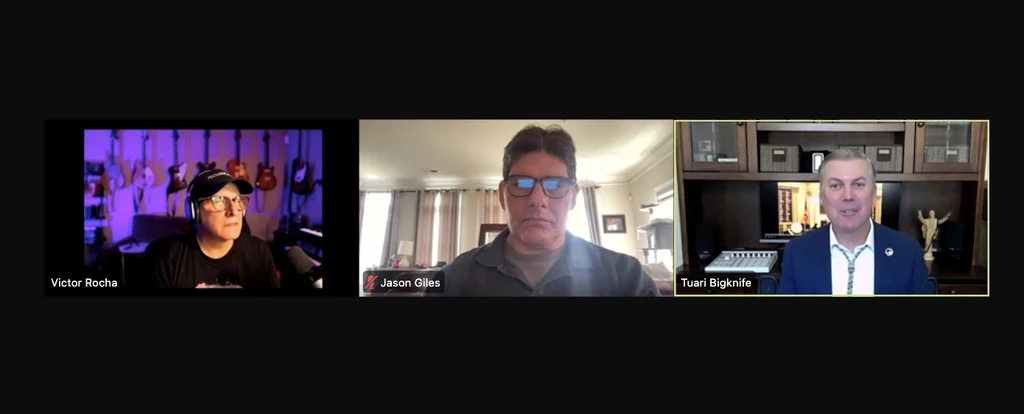California’s tribes say a bill they are backing in the state legislature would give them a right that is already legally theirs. But the state’s cardrooms are arguing that if SB 549 passes, they’ll have to lay employees off and leave some California cities in financial peril.
SB 549 would allow California tribes a one-time opportunity to bring one lawsuit against the cardrooms. The bill, backed by tribes in areas with cardroom competition, passed a second reading in the state house on 20 August. A prior version passed the senate in May 2023, but has since been amended. A house-passed version would have to go back to the senate. The general assembly is set to adjourn on Saturday, leaving four days for the bill to pass both chambers.
Viejas Band of Kumeyaay Indians attorney-general Tuari Bigknife said the bill would serve to solidify rights granted to tribes by the state. Indian Country has tried to secure those rights for more than a decade through the attorney-general’s office and the California Gambling Control Commission (CGCC), but the issue has consistently been dropped.
There have been, Bigknife said on the “New Normal” webinar on Wednesday (28 August), meetings, recommendations and hearings, but no action.
“We have been kicked out of court with the crazy idea that tribes have these rights, but do not have the ability to go to court to defend these rights,” he said.
Player-banked games and third-party providers
At issue is how California’s cardrooms run their player-banked games, like blackjack or baccarat. California law only allows house-banked card games at the state’s tribal casinos. Cardrooms can offer the games, but they are supposed to be player-banked, meaning that those who are playing rotate who is the bank. But in 2007, cardrooms adopted a new model, hiring third-party providers (TPP) to act as the bank.
The cardrooms argue that if they are forced to abandon this model, it could bankrupt them. The issue has become highly politicised. In recent weeks, there have been protests, speeches and lobbying efforts in Sacramento as the bill moves through the legislature. The cardrooms have spent millions trying to kill the bill.
“If you’re going to attack us and try to take away what we’ve had for decades, then we’ve got to fight back,” said Keith Sharp, the cardroom’s general counsel told Cal Matters. “And so we’re going to spend the money that we need to spend. I mean it’s about survival at this point.”
Cardrooms costing tribes at least $100m
But Bigknife isn’t buying the theatrics.
“We’re not moved by the fact that they are not going out there to innovate or find ways to make revenue,” he said. “The cardrooms have been in existence over 100 years, they have only been doing this illegal gaming since 2007. So there is no reason that they cannot go back to the way it was before instead of trying to do it on the backs of tribes.”
When the Covid-19 pandemic and associated shutdowns hit in 2020, it opened a window for California tribes. The cardrooms – governed by the state – were shut down for more than a year. Tribes are self-governed and many opened with restrictions in place. During that time, Bigknife said, casino revenue rose. The tribes were able to pinpoint that the existence of the current player-banked cardroom games were costing Indian Country at least $100m per year.
Does current issue affect wagering legalisation?
The idea to pass legislation to allow for a lawsuit isn’t new. Language similar to SB 549 was part of Proposition 26, the failed 2022 retail sports betting initiative. That initiative didn’t survive the fight between commercial operators and the tribes. And the next time Indian Country puts a gambling initiative on the ballot, it would probably prefer it to be unencumbered.
That said, there is at least a tenuous relationship between the current cardroom situation and legal sports betting. For the most part, tribal casinos are self governed, but the CGCC does regulate the cardrooms. It also collects certain fees from the tribes.
During Wednesday’s webinar, host Victor Rocha and Bigknife posed this question: “How can we have sports betting in California when we can’t regulate poker rooms? And we can’t manage money laundering?”
The question was somewhat rhetorical, but it does raise another question about whether or not tribes will move forward with a wagering initiative if the cardroom issue remains unsolved. California’s biggest gaming tribes and those not directly impacted by cardrooms would likely prefer to see a stand-along wagering initiative.
If the legislature doesn’t pass SB 549, Bigknife said the tribes would return to the legislature again and again. He did not dismiss the idea of going to the voters.
Finding consensus in Indian Country
Indian Country in California isn’t just one place. It is a web of sometimes far-flung reservations, homes to tribes of different sizes, cultures and economics. Bigknife said the toughest part of making progress on SB 549 has been the politics of getting a majority of those tribes to align. It is an issue that Indian Country has also been struggling with in regard to legal sports betting.
“Probably most surprising part for me, personally, has been the civics lesson in California politics,” Bigknife said. “The strategy and the timing of things. The challenges that you don’t necessarily think you are going to have to overcome.
“If a few tribes are asking for something, even if it is 100% the the right thing, it seems like we have to get all the tribes together. So we did a lot of work… the legislature wants to know that all the tribes would be on board. I thought that we could do it with a few tribes because of the righteousness of this issue.”



